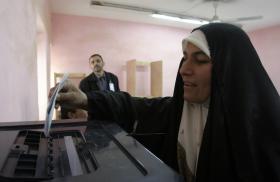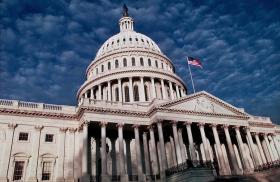
- Policy Analysis
- PolicyWatch 4049
While Other Countries Push for a Palestinian State, Israel Is Increasing Its West Bank Presence

Dramatic changes have been taking place in the West Bank, driven mainly by Israeli actions that have reduced terrorism but are simultaneously striving to prevent the establishment of a Palestinian state.
As international momentum for recognizing a Palestinian state grows—exemplified by the French- and Saudi-sponsored summit to be convened in New York on June 17—the existing order in the West Bank is eroding at an accelerating pace, and tensions that were already simmering before the Gaza war have been intensifying. This erosion has several causes, including political and ideological stagnation on the Palestinian side and declining governance and security efforts by the Palestinian Authority, particularly in confronting the sources of terrorism and lawlessness.
At the same time, the steps that Israel is taking to address real security needs are frequently being influenced by growing political pressures from the settler community and their most ardent supporters in the current government. Some of these pressures stem from settler concerns about the latest wave of Palestinian terrorism, while others are tied to a longer-term policy to reshape the West Bank strategic situation in accordance with a more openly declared political and ideological vision—that of preventing the creation of a Palestinian state and establishing more Israeli settlements.
“Iron Wall” Is Not Just “More of the Same”
Although the West Bank has lately been seen as a secondary front in the Israeli-Palestinian conflict, it has experienced high levels of terrorism and other violence since October 7, 2023. According to data from the Israel Security Agency (ISA), between the start of the war and the end of April 2025 there were 8,670 terrorist attacks in the West Bank, which killed 64 Israelis and injured 484. In addition, according to the PA Health Ministry and international organizations, between the outbreak of the war and the end of May 2025, 939 Palestinians were killed in the West Bank as a result of clashes with Israeli security forces or settlers.
Since January, Israel has been implementing a new West Bank security policy whose centerpiece is Operation Iron Wall, which seeks to restrict the freedom of action of terrorists, especially in refugee camps that had become launchpads for attacks and havens for armed groups organized in battalions. Iron Wall has focused on the northern West Bank refugee camps—primarily Jenin, Tulkarem, and the adjacent Nur Shams—which had remained largely untouched due to the PA’s reluctance to operate in them and Israel’s previous reliance on limited counterterrorism raids.
The operation has led to a significant improvement in security, with only 25 major attacks originating in the area between January and May 2025, compared to 135 in the same period last year. It has also led to the arrest of terrorists and the seizure of large quantities of vehicles, explosive devices, and cash.
Importantly, Iron Wall is not just “more of the same,” but has introduced numerous substantive innovations that suggest an intent to strategically reshape the arena. These include the operation’s duration—already five months—and the deployment of the Israel Defense Forces inside refugee camps in a way that appears to indicate that preparations are being made for a permanent presence. They also include widespread destruction of homes, roads, and infrastructure, as well as the (ostensibly temporary) displacement of tens of thousands of residents. The number of persons displaced during the operation already exceeds 40,000—the most extensive population displacement since 1967.
While these measures may be justified on operational grounds—such as the need to separate civilians from militants, uncover explosives and terrorist infrastructure, and allow armored vehicles to move within the camps—it is difficult to ignore their resemblance to Israeli tactics in Gaza, such as aerial targeted killings. This raises the distinct possibility that the operation is also serving political purposes, including the dismantling of refugee camps as part of Israel’s broader campaign against the UN Relief and Works Agency (UNRWA).
At this stage, it remains unclear what role, if any, Israel intends for the PA in the reorganization of the northern West Bank, especially the Jenin area, where Israeli activity is most intense. Palestinian observers believe Israel may be deliberately severing Jenin’s geographic and economic ties with other Palestinian cities. This seemingly includes plans to reestablish settlements that were evacuated as part of the 2005 Gaza disengagement plan, which included a few West Bank settlements as well. Efforts are also apparently underway to deepen Jenin’s economic and geographic connection with Arab Israelis, primarily by easing their access to Jenin via the Jalameh crossing. According to some estimates, Arab Israelis from the Galilee area do weekly shopping in Jenin worth around 17 million shekels (nearly $5 million)
Taken together, such actions may reflect a de facto implementation of the “canton plan” for the West Bank, which enjoys support among segments of the Israeli right. This plan proposes dividing Palestinian areas into disconnected enclaves with limited autonomy to prevent the establishment of a contiguous Palestinian state. Israel would then apply sovereignty over the remaining territory, including major settlement blocs and strategic areas.
Planning New Settlements to Prevent a Palestinian State
Under the guidance of Finance Minister Bezalel Smotrich, the Israeli cabinet announced a decision late last month to establish twenty-two new West Bank settlements. The move first took shape roughly two weeks earlier following an attack that killed a pregnant Israeli woman near the settlement of Brukhin. Some of these settlements will be newly constructed, while others will be created by legalizing previously unauthorized outposts. Many of the sites are isolated from other Israeli communities, close to Palestinian population centers, and located in areas designated for a future Palestinian state under most diplomatic frameworks, including the 2020 Trump plan.
If implemented, this would be the most extensive settlement expansion since the Oslo Accords. It follows other cabinet decisions in recent months authorizing thousands of housing units in the West Bank and advancing land registration procedures in Area C, thereby facilitating private Israeli ownership claims while impeding recognition of parallel registration efforts led by the PA.
These measures are also taking place amid a spike in confrontations between Israeli settlers—some of whom enjoy increasing support from members of the government—and Palestinian residents. According to international organizations, 2,848 such incidents occurred from the start of the Gaza war through the end of May. These clashes often lead to the displacement of Palestinians from their homes after settler violence. And in many cases, ministers pressure the ISA and the police to reduce enforcement actions against the Israeli perpetrators.
The political objective behind these initiatives—led by the Netanyahu government—is to thwart the establishment of a Palestinian state, a goal explicitly restated by Defense Minister Israel Katz after the twenty-two settlements were announced. Likewise, shortly after Donald Trump’s electoral victory last November, Smotrich declared that “2025 will be the year of sovereignty in the West Bank.”
Meanwhile, the growing international support for recognizing a Palestinian state is increasingly detached from a demand for an Israeli-Palestinian agreement or even bilateral negotiations. Some states place conditions on recognition, such as the release of hostages, disarmament of Hamas, or reform within the PA. Yet the overall trend is support for recognition without conditions. The June 17 summit was organized pursuant to a December UN resolution, and as the date approaches, diplomatic friction between Israel and the international community is intensifying, particularly with the main sponsors France and Saudi Arabia. Last weekend, Israel refused to allow a delegation of Arab foreign ministers led by Saudi Prince Faisal bin Farhan to visit PA President Mahmoud Abbas in Ramallah. Officials have also warned France that Israel will take steps in response to the New York summit, reportedly including the annexation of parts of the West Bank.
Conclusion
Changes taking place in the West Bank in recent months—driven largely by Israeli actions, including by settlers with government backing—could alter the longstanding stagnation there. Israeli policies have succeeded in reducing terrorism originating from the territory. Yet they have also intensified friction and facilitated dramatic administrative and settlement-related moves aimed at preventing the establishment of a Palestinian state, laying the groundwork for annexation or the application of Israeli sovereignty to some or all of the territory.
It is difficult to assess when or to what extent Israeli government policy will trigger a new wave of Palestinian terrorism, if at all. However, it is clearly exacerbating Israel’s diplomatic isolation—particularly in Europe, its largest trading partner, which is increasingly demonstrating a willingness to downgrade diplomatic, economic, and scientific ties. Additionally, Israel’s policies are delaying normalization with Saudi Arabia, an outcome with far-reaching implications for relations with the broader Arab and Muslim worlds.
Israel’s current approach rests on a belief prevalent among the right that the Trump administration will offer unwavering support or, at the very least, show no interest in the Palestinian issue. Although it is hard to see how this trend could be reversed as long as Israel believes that this is Washington’s posture, such a U.S. shift may begin in areas where there are direct American interests, such as ending the war in Gaza, reaching a nuclear agreement with Iran, or concluding a multiyear U.S.-Israel security assistance deal.
Neomi Neumann is a visiting fellow at The Washington Institute and former head of the research unit at the Israel Security Agency.


